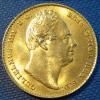|
|
The current range of books. Click the image above to see them on Amazon (printed and Kindle format). More info on coinpublications.com |
|
|

the Quest for the Magic Number
By
declanwmagee, in British Coin Related Discussions & Enquiries
 Coinpublications.com
Coinpublications.com